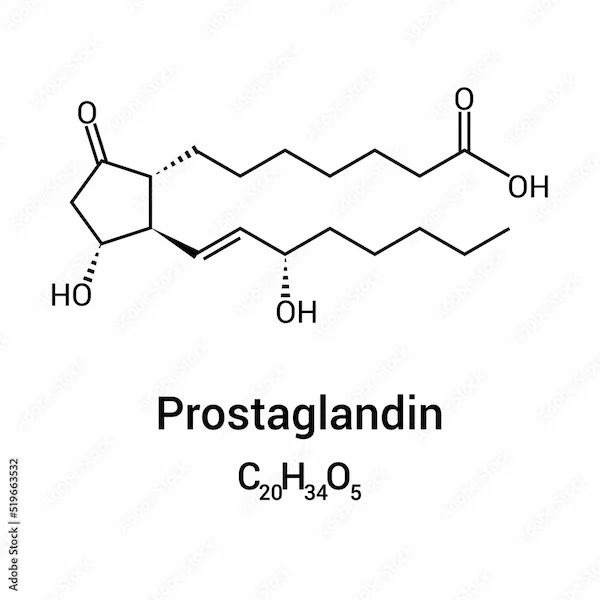How To Reduce Prolactin Naturally?
Learn natural ways to reduce high prolactin levels through diet, stress management, exercise, and lifestyle changes.

Written by Dr.Sonia Bhatt
Last updated on 13th Jan, 2026

Introduction
Prolactin is a hormone produced by the pituitary gland, primarily responsible for milk production in breastfeeding women. However, high prolactin levels, called hyperprolactinemia, can occur in both men and women, leading to various health issues such as irregular periods, infertility, low libido, and even breast milk production in non-pregnant women.
If you're experiencing symptoms of high prolactin, you may be wondering how to manage it naturally. While medical treatment is sometimes necessary, certain lifestyle and dietary changes can help regulate prolactin levels. Here’s a simple guide to reducing prolactin naturally.
Understanding High Prolactin
High prolactin levels can affect various bodily functions beyond reproduction. Recognising the signs early and understanding the underlying causes can help you take timely steps toward effective management.
1. Symptoms of High Prolactin
Depending on gender, symptoms may vary:
In Women: Irregular or missed periods, milky discharge from breasts (not related to breastfeeding), infertility, vaginal dryness, and low sex drive.
In Men: Erectile dysfunction, reduced facial/body hair, enlarged breasts (gynecomastia), and low sperm count.
General Symptoms: Headaches, vision problems (if a pituitary tumour is present), fatigue, and mood swings.
2. Common Causes
Several factors can lead to elevated prolactin levels, including:
Pituitary tumours (prolactinomas)
Stress and anxiety
Certain medications (antidepressants, antipsychotics, blood pressure drugs)
Hypothyroidism (underactive thyroid)
Excessive nipple stimulation
Chronic kidney disease
Consult Top Doctors for Personalised Treatment
Natural Ways to Lower Prolactin
If no serious underlying condition is present, the following natural approaches may help:
1. Manage Stress
Stress increases prolactin levels by triggering the release of cortisol. Practicing relaxation techniques can help:
Yoga & Meditation – Helps reduce stress hormones.
Deep Breathing Exercises – Calms the nervous system.
Adequate Sleep – Aim for 7-9 hours per night to balance hormones.
2. Eat a Balanced Diet
Certain foods can help regulate prolactin:
Vitamin B6 (Pyridoxine) – Found in bananas, chickpeas, potatoes, and salmon, it helps lower prolactin.
Zinc-Rich Foods – Pumpkin seeds, lentils, and nuts support hormonal balance.
Healthy Fats – Omega-3 sources like flaxseeds, walnuts, and fish reduce inflammation.
Avoid Processed Foods & Excess Sugar – These can disrupt hormone levels.
3. Herbal Remedies
Some herbs may help reduce prolactin naturally:
Chasteberry (Vitex agnus-castus) – Known to balance hormones, especially in women.
Maca Root – Supports endocrine function and reduces stress.
Ashwagandha – An adaptogen that helps manage stress and prolactin levels.
Always consult a doctor before taking herbal supplements, especially if you're on any medication.
4. Exercise Regularly
Moderate exercise helps regulate hormones:
Aerobic Activities – Walking, swimming, or cycling for 30 minutes daily.
Strength Training – Helps balance testosterone and prolactin in men.
Avoid excessive high-intensity workouts, as they may temporarily raise prolactin.
5. Limit Alcohol and Caffeine
Excessive alcohol and caffeine can disrupt hormonal balance. Reducing intake may help lower prolactin levels.
6. Check Thyroid Function
Hypothyroidism can increase prolactin. If you have symptoms like fatigue, weight gain, or hair loss, get your thyroid levels checked.
7. Avoid Nipple Stimulation
Frequent breast or nipple stimulation, even from tight clothing, can signal the brain to produce more prolactin.
Get Your Thyroid Health Assessed
When to See a Doctor?
While natural methods can help, consult a doctor if:
You have persistent symptoms like irregular periods or milky discharge
You experience vision problems or severe headaches (may indicate pituitary tumour)
Lifestyle changes don’t improve your condition
A doctor may recommend diagnostic tests such as blood tests or an MRI and, if needed, prescribe medications like dopamine agonists (Cabergoline, Bromocriptine) to manage prolactin levels effectively.
Final Thoughts
While natural strategies can support hormonal balance and help lower prolactin levels, medical intervention may sometimes be necessary for underlying conditions. Early diagnosis, a balanced lifestyle, and expert guidance are key to maintaining hormonal health.
If you're concerned about your prolactin levels, Apollo 24|7 offers easy online consultations with endocrinologists and diagnostic tests to help you stay on top of your health. Book an appointment today for better health and wellness.
Consult Top Endocrinologists
Consult Top Doctors for Personalised Treatment

Dr. Anand Ravi
General Physician
2 Years • MBBS
Bengaluru
PRESTIGE SHANTHINIKETAN - SOCIETY CLINIC, Bengaluru

Dr. E Prabhakar Sastry
General Physician/ Internal Medicine Specialist
40 Years • MD(Internal Medicine)
Manikonda Jagir
Apollo Clinic, Manikonda, Manikonda Jagir
(175+ Patients)

Dr. Arunava Ghosh
General Physician/ Internal Medicine Specialist
10 Years • MBBS,MD(GENL.MED.),DM(ENDOCRINOLOGY)
Kolkata
VDC Clinic, Kolkata

Dr. Shruthi B
Endocrinologist
20 Years • MBBS,MD ( GEN MED) DM (ENDOCRIONOLOGY)
Bengaluru
Apollo Clinic, JP nagar, Bengaluru
Aditya Singh
Endocrinologist
8 Years • MBBS
Bengaluru
Apollo One Electronic City, Bengaluru
Consult Top Endocrinologists

Dr. Anand Ravi
General Physician
2 Years • MBBS
Bengaluru
PRESTIGE SHANTHINIKETAN - SOCIETY CLINIC, Bengaluru

Dr. E Prabhakar Sastry
General Physician/ Internal Medicine Specialist
40 Years • MD(Internal Medicine)
Manikonda Jagir
Apollo Clinic, Manikonda, Manikonda Jagir
(175+ Patients)

Dr. Arunava Ghosh
General Physician/ Internal Medicine Specialist
10 Years • MBBS,MD(GENL.MED.),DM(ENDOCRINOLOGY)
Kolkata
VDC Clinic, Kolkata

Dr. Shruthi B
Endocrinologist
20 Years • MBBS,MD ( GEN MED) DM (ENDOCRIONOLOGY)
Bengaluru
Apollo Clinic, JP nagar, Bengaluru
Aditya Singh
Endocrinologist
8 Years • MBBS
Bengaluru
Apollo One Electronic City, Bengaluru

